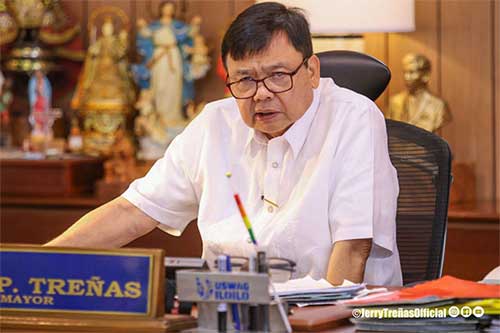By Joseph B.A. Marzan
The Department of Health-Western Visayas Center for Health Development (DOH-WV CHD) on Tuesday clarified that its finances are “all accounted for” in light of the findings of the 2020 annual audit report of the Commission on Audit (COA).
This includes the P1.08 million worth of catering services for meetings which were tagged by the COA as an “unnecessary expense”.
In its report, the audit agency said that the catering services were not essential to virtual meetings “since participants were in their respective workstations and performed their usual functions”.
The COA mulled that they would be issuing a notice of disallowance for the said expenditure, among other expenditures by DOH operating units across the country.
The DOH-WV CHD’s regional accountant, Christine Abuzo, said in a virtual presser on Tuesday that the findings covered meetings done from May to December 2020 for “more than 100 meetings and orientations”.
Abuzo explained that the catering services were bid out in 2019 prior to the coronavirus disease 2019 (COVID-19) pandemic, and that the P1.08 million price tag was the contract price and not an expenditure.
She added that the meetings in question were not fully virtual but were “blended”, with some participants physically present in the DOH-WV CHD offices.
A Regional Order was also issued by the office of the regional director in response to the COA findings, which provided that physical activities conducted by them would be provided with catering services.
Online activities with local and national officials are also to be provided with catered food, so long as there would be 10 participants from the regional office, including resource persons and secretariat.
“When COVID came and large gatherings were not allowed, the meetings weren’t fully virtual. We do the blended meeting. Those who were fed with the catering were those who came to the office. Those who were connected online were not given the food,” Abuzo said.
HEALTH FACILITIES
The regional health office also responded to the COA findings which found delayed implementation of Health Facility Enhancement Program (HFEP) in the region worth P898 million pesos in construction of various health centers and medical equipment.
Based on DOH Department Order Nos. 2015-0287 and 2016-0045 cited in the audit report, the HFEP aims at:
– Improving primary health facilities (Rural Health Units and Barangay Health Systems) to gatekeep and deliver preventive health services;
– Improve quality of local government unit (LGU) hospitals to comply with DOH licensing and PhilHealth accreditation requirements as quality referral centers; and
– Decongesting DOH hospitals to be able to provide affordable quality tertiary care and specialized treatments.
The COA found several causes for the delayed implementation of the DOH-WV CHD’s HFEP projects, which include the following:
– Lack of closer monitoring of project implementation, thus time lags were not properly addressed;
– Delayed commencement of project implementation;
– Non-conformity of contractor to the agreed plans and specifications resulting in time extensions and corrections of work done;
– Unacceptable plan revisions or modification and inadequate planning;
– Delayed downloading of funds;
– Geographically hazardous site locations;
– Unstable weather conditions;
– Unavailability of documents to prove ownership of land; and
– Various defects in the facilities.
HFEP teams were recommended by the COA to:
– Properly plan, assess, and evaluate equipment to be procured in terms of availability of space, facilities, and immediate needs of the recipient hospitals to attain the maximum use of the HFEP equipment;
– Immediately address the implementation challenges in various infrastructure projects and come up with detailed plan on how to address the problems encountered; and
– Closely coordinate with the concerned OUs in planning, monitoring, and supervision of HFEP projects.
DOH-WV CHD HFEP unit chief Engr. Rochelle Ang said in the virtual presser that they have already responded to the COA’s findings.
The Management Comment on the report on WV CHD’s HFEP projects only stated that the agency agreed with the COA recommendations.
Ang added that the HFEP projects in the report included projects from 2016 to 2019, with 56 still not implemented as of Dec. 31, 2020 and 324 already completed.
Funds were downloaded via memorandum of agreement to LGUs, who were the chief implementers of the HFEP projects.
She admitted that their human resources at the HFEP unit were lacking as they only have 2 engineers including her, 1 in charge of the equipment, and 1 HFEP engineer in every province who is detailed to DOH via memorandum of agreement.
They also lack technical personnel in the LGU level which had been the chief complaint of municipal engineers.
Monthly coordination meetings were done with the local HFEP engineers, as well as LGUs including municipal and provincial engineers.
During the Enhanced Community Quarantine (ECQ) in 2020, virtual monitoring was done by the HFEP unit through the LGU engineers, who provided photos and field reports through the local HFEP engineers.
Ang hopes that the Supreme Court’s Mandanas ruling, which mandated additional revenue allotments for LGUs, could help alleviate the LGUs’ woes by allowing for more technical personnel to be hired to speed up the delays.






















